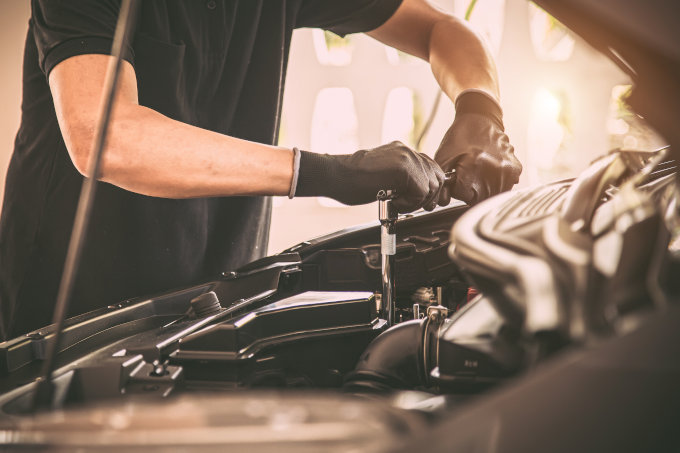In the world of car ownership, there is a wealth of information available to help you maintain your vehicle and keep it running smoothly. However, not all of this information is accurate. Over the years, various car maintenance myths and misconceptions have circulated, leading many car owners astray. In this article, we will debunk some of the most common car maintenance myths, helping you make informed decisions about caring for your vehicle.
Myth 1: You Only Need an Oil Change Every 10,000 Miles
One of the most pervasive car maintenance myths is the belief that you can go for an oil change every 10,000 miles or even longer. While advances in engine technology and synthetic oils have extended the time between oil changes, this myth oversimplifies the situation. The truth is that the frequency of oil changes depends on various factors, including your vehicle, driving habits, and the type of oil you use.
Debunking the Myth
Oil is the lifeblood of your engine, and regular oil changes are essential for its health. While some high-quality synthetic oils may allow for longer intervals between changes, the standard recommendation is still around 3,000 to 5,000 miles or every three to six months, whichever comes first. If you frequently drive in harsh conditions, such as extreme heat or stop-and-go traffic, you might need more frequent oil changes. Consult your vehicle's owner's manual for specific recommendations.
Regular oil changes help maintain proper engine lubrication and prevent sludge buildup, which can lead to costly engine damage. Ignoring this basic maintenance task can ultimately cost you more in engine repairs.
Myth 2: Premium Fuel Is Always Better
Many car owners believe that using premium fuel, with its higher octane rating, is always better for their vehicles. They think it boosts performance and provides superior fuel efficiency. However, this myth can lead to unnecessary expenses for most car owners.
Debunking the Myth
Premium fuel, with its higher octane rating, is primarily designed for high-performance and luxury vehicles that require it. Using premium fuel in a vehicle that doesn't need it won't improve performance or fuel efficiency. Most modern cars are engineered to run optimally on regular unleaded gasoline with an octane rating of 87.
Using premium fuel when it's not necessary is just a waste of money. In fact, it can even lead to carbon buildup in the engine, which can reduce fuel efficiency and increase maintenance costs. Always consult your owner's manual to determine the recommended fuel for your vehicle.
Myth 3: You Should Warm Up Your Engine Before Driving
Many people believe that it's essential to warm up the engine of their car before hitting the road, especially in cold weather. The idea is that the engine needs time to reach its optimal operating temperature. While this myth is rooted in the past, it doesn't apply to modern vehicles.
Debunking the Myth
Warming up your engine by idling for an extended period is not necessary and can be detrimental to both your engine and the environment. Modern cars are designed to be driven shortly after starting. When you drive, the engine warms up faster, and the catalytic converter becomes more efficient in reducing emissions. Idling for an extended period of time, on the other hand, consumes fuel and generates unnecessary exhaust emissions.
Today's engines are equipped with advanced systems that regulate the engine's temperature and ensure it operates efficiently, even in cold conditions. Therefore, there's no need to idle your car before driving.
Myth 4: Engine Oil Should Always Be "Topped Off"
Some car owners believe that they should regularly "top off" their engine oil, even if it hasn't reached the recommended oil change interval. They think it's a way to keep the engine well-lubricated at all times.
Debunking the Myth
Topping off your engine oil is generally not necessary and can lead to overfilling the engine, which is just as detrimental as having too little oil. It's essential to maintain the proper oil level, but that level is typically indicated on the dipstick or mentioned in your owner's manual. Overfilling the engine can lead to excessive oil pressure, which can cause leaks and other issues.
If you notice that your engine is consistently losing oil between oil changes, it's a sign of a problem that needs to be addressed, such as a leak. Regularly topping off the oil won't fix the underlying issue and could mask a potentially serious problem.
Myth 5: You Should Inflate Your Tires to the Maximum Pressure Listed on the Sidewall
Some car owners believe that inflating their tires to the maximum pressure listed on the sidewall of the tire is the best way to maximize fuel efficiency and tire life. They think that more air equals better performance.
Debunking the Myth
Inflating your tires to the maximum pressure listed on the sidewall is a big mistake. The number on the sidewall represents the tire's maximum pressure, not the recommended pressure for your specific vehicle. Overinflating your tires can lead to a harsh ride, reduced traction, and uneven tire wear.
The correct tire pressure for your vehicle can usually be found in the owner's manual or on a sticker located on the driver's side door jamb. It's essential to maintain the recommended tire pressure to ensure optimal handling, traction, and fuel efficiency. Regularly check and adjust your tire pressure to the manufacturer's specifications.
Myth 6: You Can Skip Routine Maintenance if Your Car Is Running Fine
Some car owners believe that if their vehicle is running well and not exhibiting any noticeable problems, they can skip routine maintenance. They think that as long as they don't hear any strange noises or see warning lights on the dashboard, their car is in good shape.
Debunking the Myth
Routine maintenance is essential to prevent problems from developing in the first place. Waiting for your car to exhibit noticeable issues can lead to costly repairs and potentially leave you stranded on the side of the road.
Regular maintenance tasks, such as oil changes, tire rotations, brake inspections, and fluid checks, help ensure the long-term health and reliability of your vehicle. Additionally, scheduled maintenance can catch problems early, saving you money and preventing major breakdowns.
Myth 7: You Can Extend the Life of Your Air Filter by Cleaning It
Some car owners believe that cleaning their vehicle's air filter is a viable way to extend its life and maintain optimal engine performance.
Debunking the Myth
While it's true that air filters can become clogged with dirt and debris over time, cleaning and reusing them isn't always a good idea. Many modern air filters are designed for one-time use and are made of materials that may not withstand cleaning.
Moreover, air filters are relatively inexpensive, and replacing them is a quick and straightforward maintenance task. Trying to clean and reuse an air filter may result in insufficient filtration and allow contaminants to enter your engine, potentially causing damage. It's better to replace your air filter at the recommended intervals specified in your owner's manual.
Myth 8: Washing Your Car With Dish Soap Is Just as Good as Using Car Wash Soap
Some car owners believe that washing their vehicle with dish soap is a cost-effective alternative to using car wash soap. They think that soap is soap, and it will get the job done.
Debunking the Myth
While dish soap can remove dirt and grime from your car's exterior, it's not the best option for several reasons. Dish soap is designed to cut through grease and oils, which are commonly found in the kitchen, but it can be harsh on your car's paint and finish. Using dish soap on your car regularly can strip away protective wax and leave your vehicle's paint vulnerable to damage from UV rays and contaminants.
Car wash soaps are specifically formulated to clean your vehicle without harming the paint or clear coat. They often include ingredients that help maintain the wax and protect your car's finish. Using the right soap is a small investment to help preserve the appearance and value of your car.
Myth 9: You Should Warm Up Your Car on Cold Days
Many car owners believe that they should warm up their car on cold days to help the engine reach its operating temperature and prevent damage. They think it's essential for the car's health in low temperatures.
Debunking the Myth
Modern cars are designed to operate efficiently in cold weather conditions. Warming up your car by idling is not only unnecessary but also potentially harmful. Idling consumes fuel, contributes to air pollution, and can result in carbon buildup in the engine.
The best practice on cold days is to start your car and let it run for 30 seconds to a minute, then drive gently. This allows the engine to warm up faster and more efficiently than idling. The transmission also warms up when you drive, reducing wear and tear on your vehicle. However, avoid revving the engine excessively until it's reached its optimal operating temperature.
Myth 10: All Transmission Fluids Are the Same
Some car owners believe that all transmission fluids are essentially interchangeable. They think that as long as the fluid is labeled as "transmission fluid," it will work in their vehicle.
Debunking the Myth
Transmission fluids are not all the same, and using the wrong type of transmission fluid can damage your vehicle's transmission. Different vehicles require specific types of transmission fluid, and using the wrong one can lead to performance issues, overheating, and even transmission failure.
To ensure the proper transmission function and prevent damage, always use the transmission fluid specified in your owner's manual. When it comes time for a transmission fluid change, consult a professional mechanic to ensure that the correct type and quantity of fluid are used.
Myth 11: All Season Tires Are Suitable for All Weather Conditions
Many car owners believe that all-season tires are genuinely suitable for all weather conditions, from hot summers to snowy winters. They think that they provide a good balance of performance year-round.
Debunking the Myth
While all-season tires are versatile and can handle a range of weather conditions, they are not ideal for extreme climates. All-season tires are a compromise between summer and winter tires, making them less than optimal in either extreme.
In areas with severe winters, using dedicated winter tires is essential for safety and performance. Winter tires are designed to provide superior traction and handling in cold and icy conditions. In hot summer weather, summer tires can provide better performance and handling compared to all-season tires. If you live in an area with extreme weather, consider investing in a set of dedicated winter and summer tires for the best performance and safety.
Car maintenance is a critical aspect of vehicle ownership, and it's essential to base your maintenance decisions on facts rather than myths. Debunking these common car maintenance myths can help you save money, protect your vehicle, and make informed choices when it comes to the care and maintenance of your car.
Remember that every car is unique, so it's crucial to consult your vehicle's owner's manual for specific maintenance recommendations and to reach out to a trusted mechanic for any questions or concerns. By separating fact from fiction and making informed decisions, you can ensure that your car continues to run smoothly and reliably for years to come.

 Schedule Appointment
Schedule Appointment















